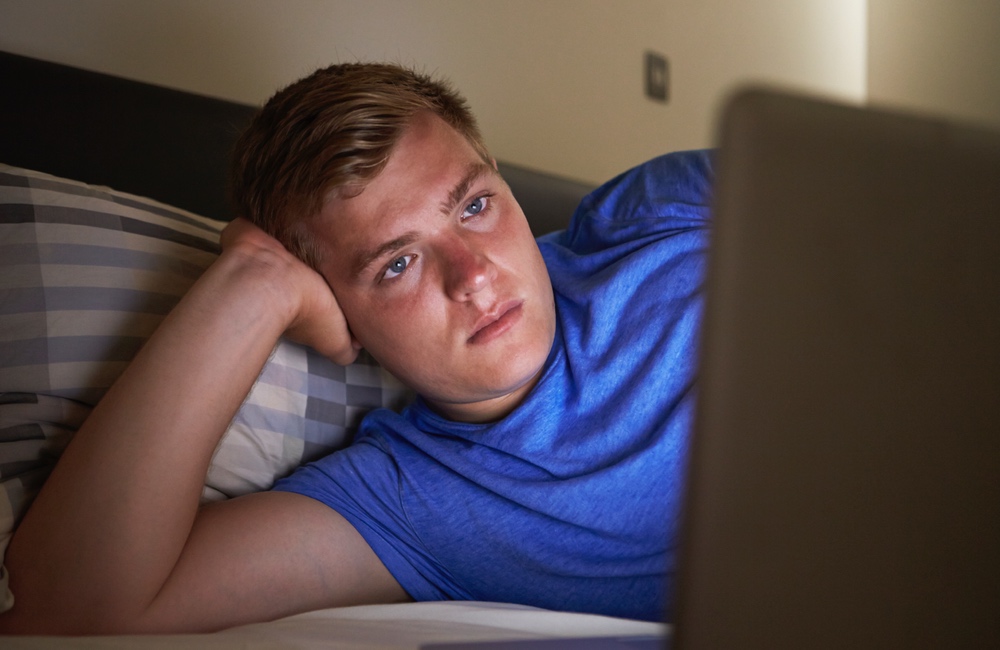Many parents have a grudging admiration for their teens' expertise about social media, hip as they are to all the latest websites and apps. But the pressure to keep up with their online social worlds often comes at a price to teens — poorer mental health. This is especially true when, to keep up-to-date, they stay up late at night and sacrifice sleep for some extra screen time.
British researchers asked tweens and teens a number of questions to determine whether they might be dealing with certain mental health issues such as sleep problems, low self-esteem, anxiety, and depression. They also measured their emotional investment in social media — that is, how much they felt the need to be online and the pressure to respond quickly — and how much time they spent digitally engaged, particularly around bedtime.
Kids who spent more time on social media, and particularly those who used it more at night, had poorer sleep quality, lower self-esteem, and higher levels of anxiety and depression. Emotional investment in social media was also linked to greater risk for these mental health issues.There seems to be a paradoxical effect happening with our online time — it seems like it can make things better, but it can actually make things worse.
We’re still learning all the intricacies of how technology affects both adults and kids. Learning to control our online time is a hard exercise in self-control, but a necessary one. It’s equally important to help our kids learn to do the same.
“Adolescence can be a period of increased vulnerability for the onset of depression and anxiety, and poor sleep quality may contribute to this,” said Woods. “Evidence is increasingly supporting a link between social media use and wellbeing, particularly during adolescence, but the causes of this are unclear.”
Other studies have found similar effects of social media use in adults — linking overuse to depression, low self-esteem, feelings of jealousy, and the fear of missing out. So it’s not surprising that kids are vulnerable as well, particularly given how susceptible they are to the pressures of social life, and to the addictive qualities of technology.
It is not just the content of online posts and the pressure to keep up that is hard on teens. Even the light emitted from the screens themselves is known to disrupt melatonin release, making sleep even harder to come by directly after a smartphone, iPad or other online session.
Unplugging and having real conversations with friends and family can help more than teens may think. Woods urges parents to talk with their kids and get the message across that having some down time is OK. In fact, it may be more than OK, it may be critical to their development.
The study was carried out by a team at the University of Glasgow and presented at a British Psychological Society’s annual conference in England. It has not yet been published in a peer-reviewed journal.





